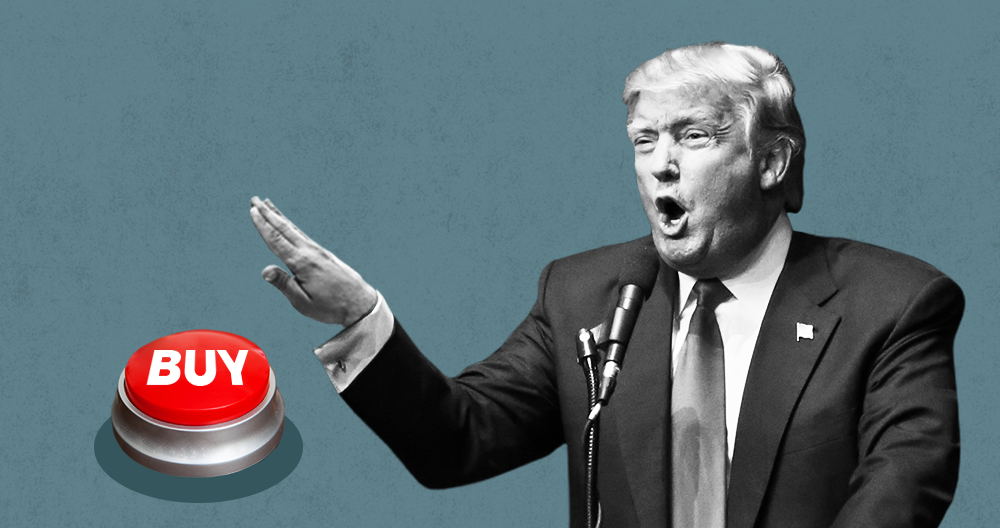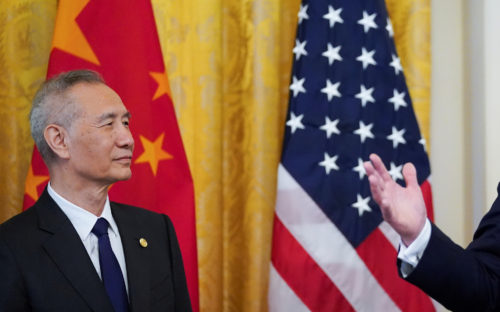Trump wants transactions from China

Photo credit: The China Project illustration
On October 3, President Trump publicly called on China to interfere in the 2020 U.S. presidential election by investigating his chief political rival, Joe Biden. Right before he made this request, he said, unprompted, “I have a lot of options on China…if they don’t do what we want, we have tremendous power.” As Politico points out, this is “activity similar to the allegations at the heart of Democrats’ rapidly intensifying impeachment probe.”
Joe Biden’s son Hunter has done business in China, but as the New York Times puts it, “the president’s claims [about Hunter Biden] bear little if any relation to the known facts.”
Some members of Trump’s party have cast doubt on whether this was a “real request” (to quote Marco Rubio), but the immediate reaction from China to Trump’s words was to take them seriously, per CNN:
One Trump ally outside the White House described receiving a message from Chinese government officials asking if Trump was serious when he suggested China open an investigation into Biden. The response: investigating corruption is an easy way to earn goodwill with Trump.
We would also point out that by all indications, no bargaining chip is too big, unconventional, or outrageous for Trump to offer it up in transactions with China. For instance, Trump agreed to keep quiet on the protests in Hong Kong as long as the trade war remained unsolved, as the Financial Times first reported in July and CNN confirmed last week.
It is in this cursed political context that the 13th (!) round of U.S.-China trade talks will begin this week in Washington, on October 10. As with all previous 12 rounds, there is a media machine magnifying every wisp of hope for an end to the market-rattling tariffs, but if past performance is any indication, it is unlikely that a deal of any major significance will be met this week. Two additional data points indicate that the most probable outcome is status quo:
- The Trump administration is as sensitive to market movements as ever, and early last week weaseled away from a proposal floated to limit U.S. investment in Chinese companies, after it spooked financial markets. More tariffs are unlikely (though can never be ruled out with Trump).
- If anything, impeachment news makes China less likely to compromise, as Beijing likely perceives Trump to be more desperate for a “win” now than at any previous point in his presidency.





